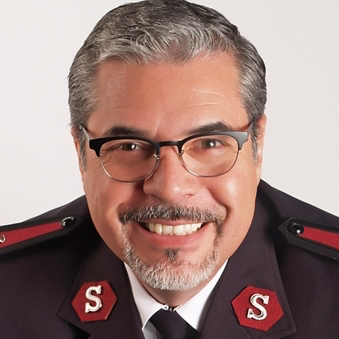-
Prepare-Restore-Rebuild
Contributed by Major Gerardo Balmori on Mar 10, 2018 (message contributor)
Summary: The Old Testament uses prophecy a great deal, but did you know there is also prophetic teaching in the New Testament. By the prophecy, God made understand his people that: “We need restoration”
Mayor Gerardo Balmori
The Salvation Army
Introduction:
What is prophecy?
A. Easton’s Bible Dictionary defines it as a "miracle of knowledge, a declaration or description or
representation of something future, beyond the power of human sagacity to foresee, discern, or
conjecture." The Bible proclaims that a prophet is one who speaks the words of God
The Old Testament uses prophecy a great deal, but did you know there is also prophetic teaching
in the New Testament. By the prophecy, God made understand his people that: “We need
restoration”
I. The prophecy and fulfillment of it (Ezra 1:1-4)
A. 8th and 7th Century prophets made prophecies concerning the future need of restoration for
Judah.
1. Jeremiah 25:11-12 (Read)
a. Judah will be laid waste, Judah will serve Babylon for 70 years, but then God will punish
Babylon. Isaiah 44:28-45:1,13 (Read)
a. Cyrus will carry out God’s purpose and will rebuild Jerusalem
c. God will open doors for Cyrus to conquer kingdoms, who will set the Jews free
So just how did God restore His temple? Ezra 1:1-4 (Read)
1. The prophecies of Isaiah come true: Cyrus will carry out God’s purpose. Cyrus will rebuild
Jerusalem. God will open doors for Cyrus to conquer kingdoms. Cyrus will set the Jews free
2. Philippians 2:13 “for it is God who works in you to will and to act according to his good
purpose.”
a. God uses all kinds of people to do his will even though sometimes we may not even understand
why.
b. He used many unrighteous people to inflict judgment on the Israelites.
c. Habakkuk expressed his inability to understand (Habakkuk 1:12-13) (Read)
d. Although God has used the unrighteous to do his will, of course he has used the righteous also
Ruth, Esther, and etc. (Ruth 1:14-18; Est. 4:12-17)
e. The point is that God uses people to complete his will.
3. Not necessarily, a believer in God, Cyrus answers the call given to him by God and gives four
proclamations.
a. Cyrus acknowledged that Yahweh had placed under his authority all the kingdoms of the earth.
b. He realized that Yahweh had appointed him to build his house in Jerusalem.
c. He authorized Yahweh’s people to go up to Jerusalem and rebuild the house of the Lord.
d. He authorized those who chose not to return to Judah the ability to support the remnant and to
make freewill offerings for the reconstruction of the temple.
II. God calls the remnant (1:5-6)
A. Ezra 1:5-6 “Then the family heads of Judah and Benjamin, and the priests and Levites--
everyone whose heart God had moved-- prepared to go up and build the house of the LORD in
Jerusalem. All their neighbors assisted them with articles of silver and gold, with goods and
livestock, and with valuable gifts, in addition to all the freewill offerings.”
B. My question is why did not everyone jump at the opportunity to return home from his or her
captivity.
1. Maybe because they were comfortable and happy.
2. Maybe because they knew that the road ahead was not going to be easy
3. Maybe they had lost their faith
C. Some did rise from the three tribes left of the original twelve.
1. Leaders of the families of Judah and Benjamin plus some Levites heard the calling of God and
began the preparations to return
2. They began with the financial preparations for the initial trip
III. God’s possessions are returned
A. Ezra 1:7-11 (Read)
B. Cyrus returned what belonged to God in the first place.
1. Remember the story of “the writing on the wall” from Daniel
2. These items belonged to God and were returned to him freely
Conclusion:
I. Many questions of application still float on the tips of our tongues in consideration of biblical
restoration.
A. Why doesn’t everyone answer the call of God? How does God call individuals? Can God call me?
What is it that we have that we need to return to God?
B. Restoration is a direction or path that is filled with tough hurdles as we will find out in the rest
of the book of Ezra
1. People in general enjoy the status quo. Anything beyond the status quo is asking too much.
2. Many did not return at the first opportunity. Why?
3. How about you? When you are called by God to change some things that you have done for at
least half of your lifetime, do you change?
4. Customs and traditions are always questioned by the word of God, and most times those
traditions need change.
C. How does God call people? Can God call me?
1. In Acts 2:39 “The promise is for you and your children and for all who are far off-- for all whom
the Lord our God will call.”

 Sermon Central
Sermon Central



